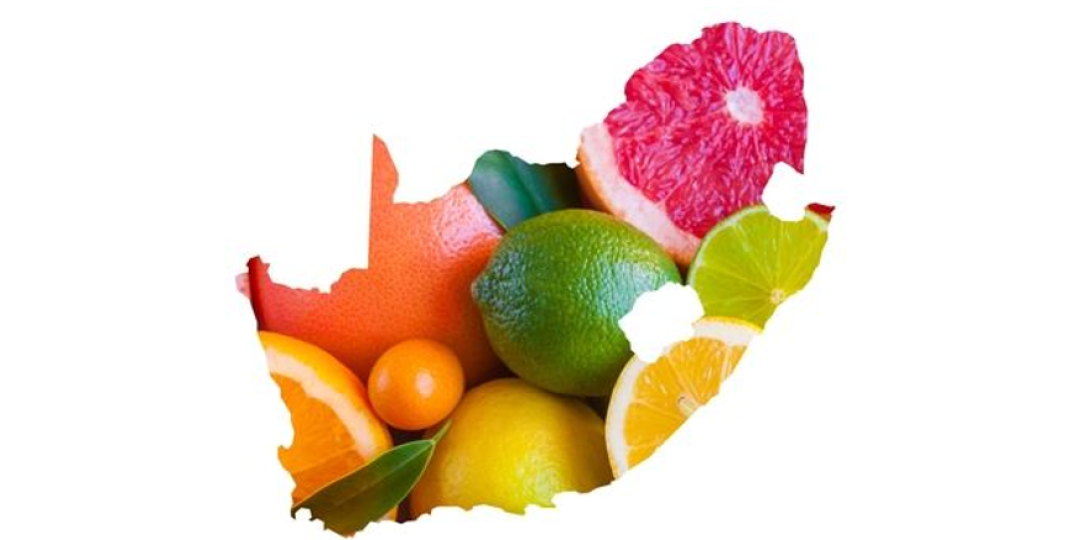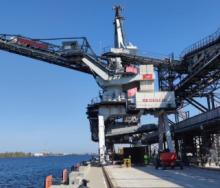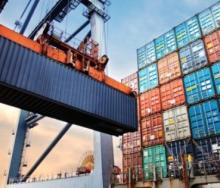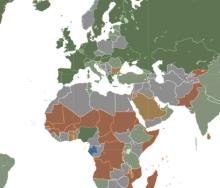South Africa’s citrus export success story has faced serious challenges over the last few years: extreme weather, logistical hurdles on the home front because of the country’s underperforming ports, and spurious phytosanitary checks engineered by Spain, our main EU rival.
But since last year, a new threat has emerged from the United States, where local producers have had a competitive edge thanks to the decades-old African Growth and Opportunity Act (Agoa).
With Donald Trump now once again in charge of South Africa’s second-biggest trading partner after China, the prospect of losing Agoa benefits looms large because of the US Administration’s trade truculence.
Interviewed by Daily Maverick (DM), Justin Chadwick of the Citrus Growers Association, who stepped down as the organisation’s CEO on January 31, spelt out exactly how bad it would be for the industry if Trump terminated SA’s Agoa benefits.
“Agoa keeps our citrus tariff‐free, allowing us to compete with southern hemisphere rivals such as Peru and Chile – countries that already benefit from lower costs and duty‐free access,” he said.
“If removed, we risk losing thousands of rural jobs and over a billion rand in export revenue, as currently 35 000 local jobs and an additional 20 000 jobs in the US depend on these exports.”
Chadwick’s comments underscore the industry’s heavy reliance on Agoa. This has helped South African citrus maintain its foothold in a market that received 110 415 tons of produce in 2022/23—roughly 9% of the nation’s total citrus exports, DM reports.
While the US accounts for only about 9% of South Africa’s citrus exports, it remains a key market due to its extensive consumer base, significant purchasing power, and the preferential access provided under Agoa.
Over the past five years, exports to the US have nearly doubled, demonstrating a strong global demand for premium-quality citrus. However, the potential revocation of tariff-free status presents a substantial risk. Economic projections indicate that even a moderate tariff increase could lead US buyers to seek alternative suppliers in countries such as Peru, Mexico or Chile, which already benefit from comparable trade agreements.
Analysts estimate that the loss of Agoa benefits could reduce export volumes by as much as 10%, with far-reaching consequences for employment in rural areas and overall regional economic stability.
While concerns from industry players on the ground remain pressing, experts emphasise the need for a broader perspective.
Gerrit van der Merwe, managing director of citrus exporter ALG Estates in Citrusdal, told DM the introduction of a tariff of nine US cents per kilogram would pose a significant burden. He also pointed out that competitors such as Peru and Chile would be able to absorb these costs more easily and expressed hope for a mutually beneficial resolution.
His concerns highlight the financial pressures that could destabilise an industry employing tens of thousands. However, independent economic assessments suggest that the repercussions could extend beyond pricing alone.
Meanwhile, government trade representatives are reportedly engaged in early-stage discussions to explore alternative market access strategies. While no formal measures have been announced, industry analysts speculate that negotiations with emerging markets in Asia may help mitigate potential losses.
DM reports that the possibility of losing Agoa benefits, along with broader trade-related challenges, has placed the South African citrus industry at a critical juncture. While the current trade framework has facilitated growth, the sector’s long-term sustainability will depend on both maintaining preferential access and adapting to evolving global trade dynamics. Success will not only be measured in export performance but also in the industry’s ability to sustain rural livelihoods and expand into new markets.
Key stakeholders, including the CGA, government officials, and independent trade specialists, advocate a collaborative approach. The priority must now be to negotiate resilient trade agreements while actively identifying alternative markets, such as India and China, to ensure long-term stability and growth.
Chadwick told agriculture news site Food for Mzansi that citrus exports to India had already tripled since 2020, reaching 30 000 tonnes, although the 30% import tariff remains a significant barrier.
In an increasingly uncertain trade landscape, the resilience of SA’s citrus industry will ultimately be determined by its capacity to innovate, adapt and engage in strategic policy discussions. The sector’s future – and the economic well-being of many rural communities – hinges on decisive action and a commitment to preserving the competitive advantages that have long secured South Africa’s place in the global citrus market.












